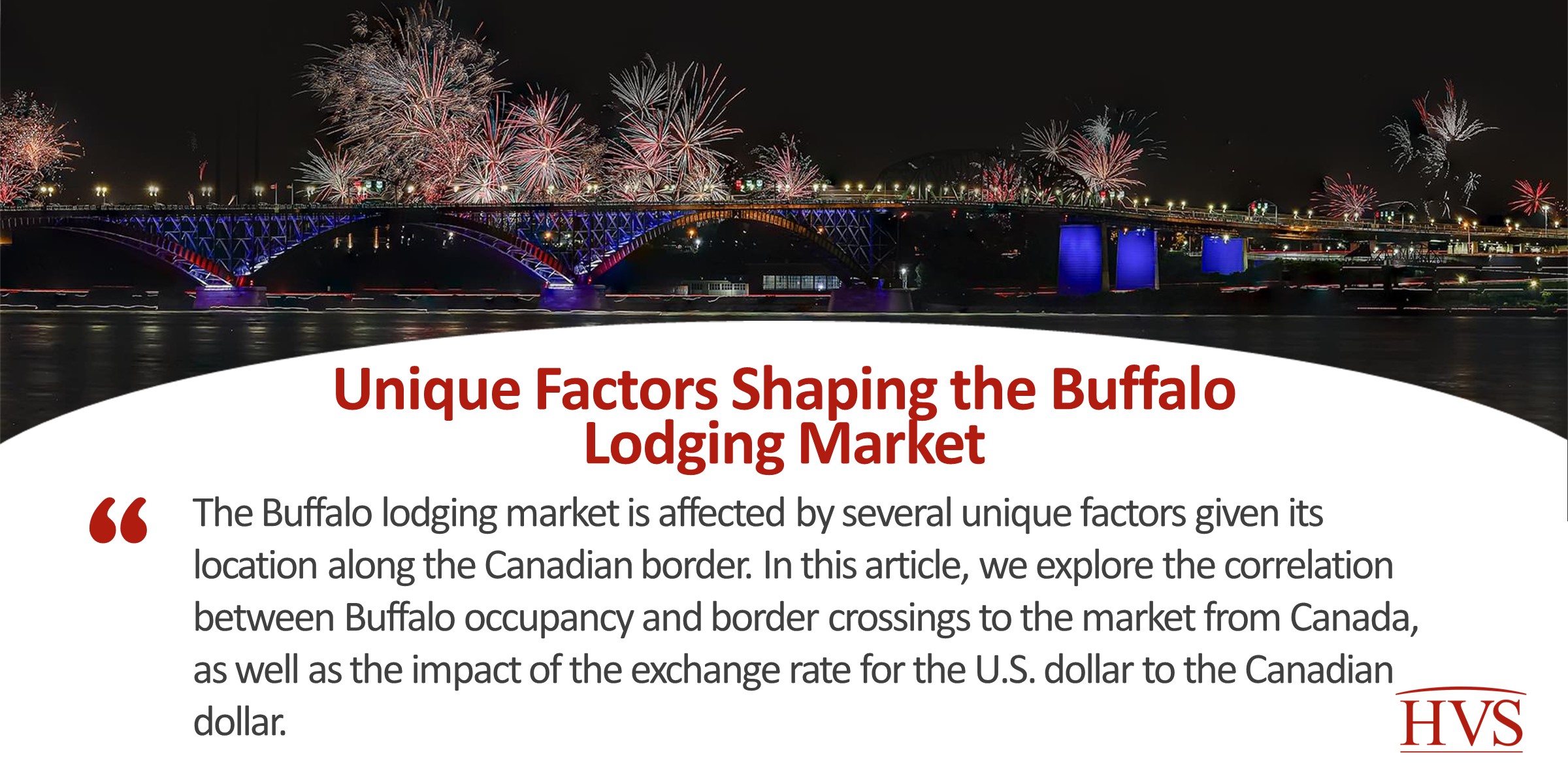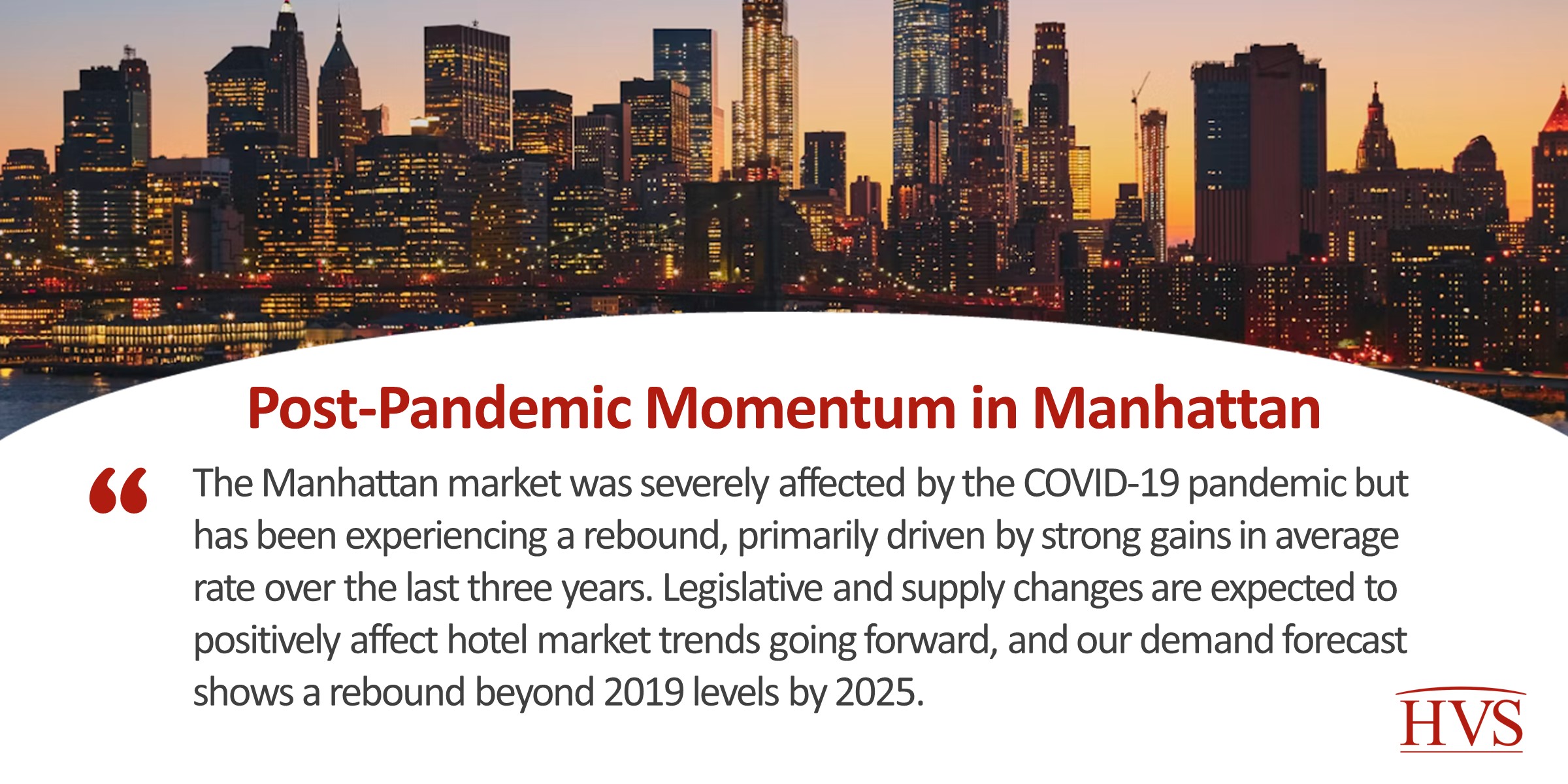The Newark Airport hotel market has faced significant adjustments since the onset of the COVID-19 pandemic. Changes to the submarket’s hotel supply, coupled with the rebound in passenger levels through Newark Airport, have resulted in a slow but steady recovery of the hotel market. Recent and upcoming expansion projects at Newark Airport support a positive outlook.
Industry Insights
We have written thousands of articles about all aspects of hospitality, including valuations, investing, lending, operations, asset management, and much more.
The Changing Landscape and Recovery of the Newark Airport Hotel Market
The Newark Airport hotel market has faced significant adjustments since the onset of the COVID-19 pandemic. Changes to the submarket’s hotel supply, coupled with the rebound in passenger levels through Newark Airport, have resulted in a slow but steady recovery of the hotel market. Recent and upcoming expansion projects at Newark Airport support a positive outlook.
Hotel Assets: The Dark Horse in Real Estate Investing
The real estate market is constantly evolving, influenced by economic factors and societal trends. Over the years, different real estate sectors have taken turns in the spotlight, with office and multi-family properties often seen as safe and stable investments. However, recent data suggests a changing landscape, with hotel assets emerging as a more attractive investment option. In this article, we will explore how real estate investment in the lodging sector is becoming more appealing.
2024 HVS Lodging Tax Report - USA
This fourteenth annual HVS Lodging Tax Study presents comprehensive data on city, state, and special district lodging and sales taxes imposed on lodging sales. We provide historical data on tax rates and the collection and distribution of revenue from lodging taxes levied in all 50 States and the 150 largest US cities.
The Continued Evolution of Newark, New Jersey
Newark, New Jersey, has been undergoing gradual revitalization efforts during the last roughly 15 years. The city has been gaining recognition given the ease of access to Manhattan and within New Jersey, the newly renovated Newark Liberty International Airport, and waterfront areas along the Passaic River and Newark Bay.
Another Successful Hotel Real Estate Society Event in Washington, D.C.–August 2024
The Hotel Real Estate Society (HRES) in Washington, D.C., met this week to network and tour a local luxury hotel. This article provides a quick overview of the organization, which was co-founded by Chelsey Leffet, and some information on this latest event.
Looking Ahead to the 2026 NFL Draft in Pittsburgh and Its Impact on the Hotel Market
With Pittsburgh recently announced as the host city for the 2026 NFL Draft, we take a look at the impact of previous drafts on both the host cities and area hotels.
Unique Factors Shaping the Buffalo Lodging Market
The Buffalo lodging market is affected by several unique factors given its location along the Canadian border. In this article, we explore the correlation between Buffalo occupancy and border crossings to the market from Canada, as well as the impact of the exchange rate for the U.S. dollar to the Canadian dollar.
A Closer Look at Hotel Interest Rates: Past and Future
In recent months, it has become clear that interest rates may stay higher for longer. In this article, we have compiled and analyzed historical hotel interest rate data, as well as indications from the Fed on the anticipated direction of interest rates, to provide some context for hotel financing trends.
Understanding the Current State of the Hotel Transaction Market
The hotel transaction market continues to face significant headwinds. Nonetheless, there are still many good deals to be had, and with some patience and strategy, long-term returns may match or even exceed an investor’s expectations. This article examines and compares current transaction data to historical activity.
Post-Pandemic Momentum in Manhattan
The Manhattan market was severely affected by the COVID-19 pandemic but has been experiencing a rebound, primarily driven by strong gains in average rate over the last three years. Legislative and supply changes are expected to positively affect hotel market trends going forward, and our demand forecast shows a rebound beyond 2019 levels by 2025.
Industry Insights
We have written thousands of articles about all aspects of hospitality, including valuations, investing, lending, operations, asset management, and much more.
The real estate market is constantly evolving, influenced by economic factors and societal trends. Over the years, different real estate sectors have taken turns in the spotlight, with office and multi-family properties often seen as safe and stable investments. However, recent data suggests a changing landscape, with hotel assets emerging as a more attractive investment option. In this article, we will explore how real estate investment in the lodging sector is becoming more appealing.
This fourteenth annual HVS Lodging Tax Study presents comprehensive data on city, state, and special district lodging and sales taxes imposed on lodging sales. We provide historical data on tax rates and the collection and distribution of revenue from lodging taxes levied in all 50 States and the 150 largest US cities.
Newark, New Jersey, has been undergoing gradual revitalization efforts during the last roughly 15 years. The city has been gaining recognition given the ease of access to Manhattan and within New Jersey, the newly renovated Newark Liberty International Airport, and waterfront areas along the Passaic River and Newark Bay.
The Hotel Real Estate Society (HRES) in Washington, D.C., met this week to network and tour a local luxury hotel. This article provides a quick overview of the organization, which was co-founded by Chelsey Leffet, and some information on this latest event.
With Pittsburgh recently announced as the host city for the 2026 NFL Draft, we take a look at the impact of previous drafts on both the host cities and area hotels.

The Buffalo lodging market is affected by several unique factors given its location along the Canadian border. In this article, we explore the correlation between Buffalo occupancy and border crossings to the market from Canada, as well as the impact of the exchange rate for the U.S. dollar to the Canadian dollar.

In recent months, it has become clear that interest rates may stay higher for longer. In this article, we have compiled and analyzed historical hotel interest rate data, as well as indications from the Fed on the anticipated direction of interest rates, to provide some context for hotel financing trends.
The hotel transaction market continues to face significant headwinds. Nonetheless, there are still many good deals to be had, and with some patience and strategy, long-term returns may match or even exceed an investor’s expectations. This article examines and compares current transaction data to historical activity.

The Manhattan market was severely affected by the COVID-19 pandemic but has been experiencing a rebound, primarily driven by strong gains in average rate over the last three years. Legislative and supply changes are expected to positively affect hotel market trends going forward, and our demand forecast shows a rebound beyond 2019 levels by 2025.

Robust demand in urban centers continues to drive Canadian hotel values despite high interest rate environment.